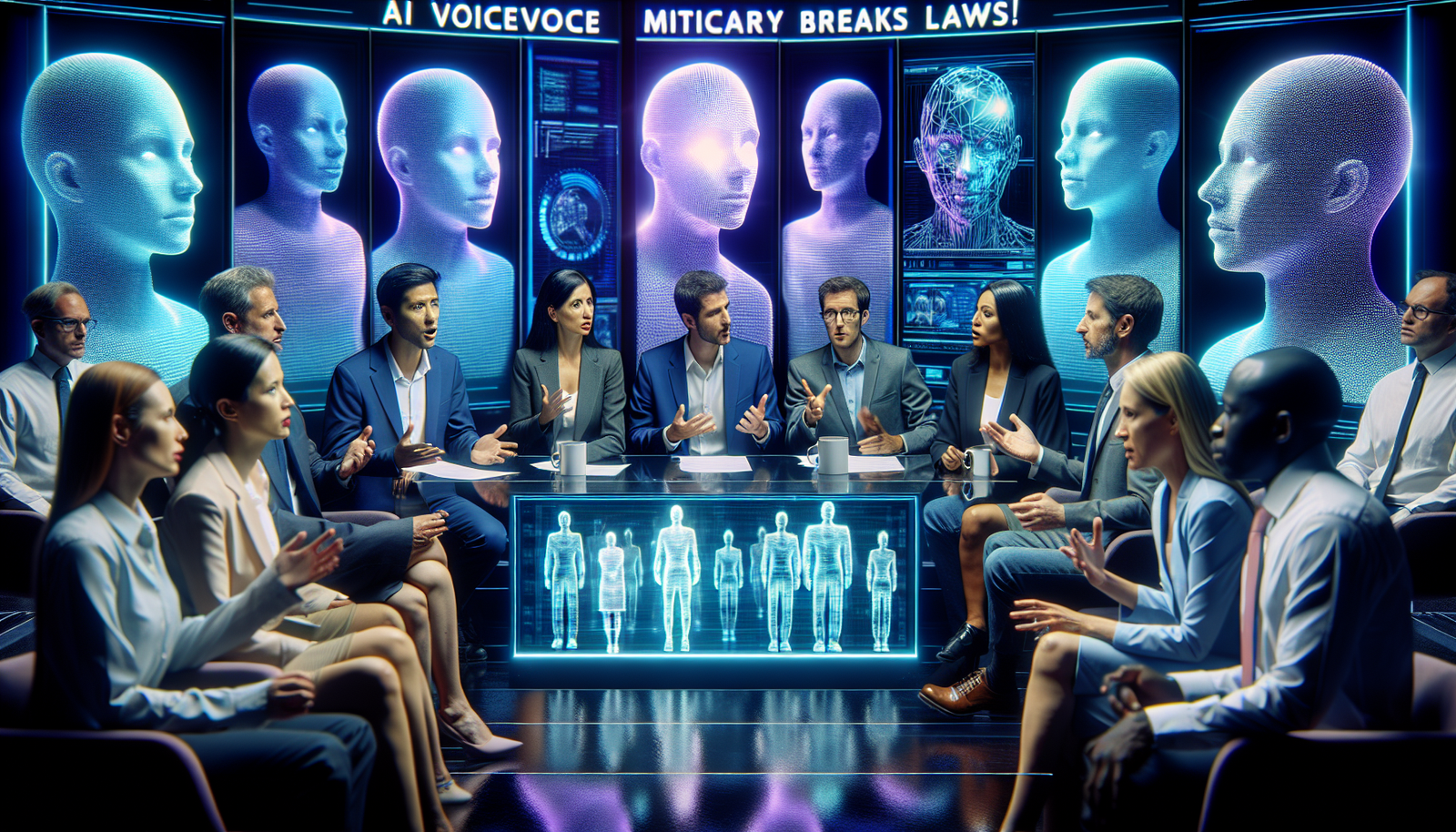The vocal impersonation of celebrities by AI presents an unprecedented ethical and legal challenge. The lack of regulation in the face of this devastating technology raises legitimate concerns. Experts warn about the proliferation of fraud orchestrated via voice clones, particularly in the context of scams. The fame of iconic figures such as Jennifer Aniston and David Attenborough is at risk, and their voices, misappropriated without consent, herald a tragic upheaval of copyright rights. Soon, the question arises: who protects vocal identity?
Issues of Vocal Cloning
Several celebrities, such as Jennifer Aniston, Oprah Winfrey, and Kylie Jenner, have become victims of fraud based on the cloning of their voices. Impostors have used artificial intelligence technologies to reproduce specific tones, making it difficult to identify the scam. The iconic voice of David Attenborough has also been cloned, used to disseminate partisan news, causing an uproar from him.
Legislative Failures
Technological advancements in vocal cloning are progressing at such a pace that existing laws are quickly becoming outdated. Experts, such as Dr. Dominic Lees, emphasize the gap between current legislation regarding privacy and copyright, and the new realities posed by this technology. Attenborough himself has expressed his outrage at this unauthorized appropriation of his identity.
Increase in Scams
Scams related to cloned voices rose by 30% in the UK in just one year. A study by NatWest revealed that an increasing number of consumers are suffering the consequences of these frauds. The Starling Bank has noted that 28% of the population has been targeted at least once by this type of malicious strategy.
Common Scam Cases
Scammers are also using voice cloning to execute a variant of the famous “Hi mom” scam. The fraudsters pretend to be children, soliciting financial help in emergencies. On often distorted phone lines, distinguishing a call from a loved one from an imitation remains a challenge.
Call for Regulation
The growing scale of these abuses is prompting experts to demand government intervention. Dr. Lees insists on the need for strict regulation to prevent these abuses. The House of Commons is currently examining the ethical use of AI in the film industry, reflecting the growing concern over the rapid evolution of voice technology.
Emotional and Artistic Risks
The implications of vocal cloning extend beyond scams. The potentially harmful use of these voices raises concerns about authenticity. The voiceover market is beginning to undergo a radical transformation as companies adopt these technologies to replace human artists. Joe Lewis, a voice designer at Voiceover Gallery, indicates that artificial intelligence has already replicated some voices of his artists.
Consequences for Celebrities
Celebrities whose voices are cloned suffer considerable harm. David Attenborough clarified how disconcerted he is to find that his voice is used to convey messages he does not support. Moreover, when future AI models imitated celebrity voices, like that of Scarlett Johansson, she expressed her outrage at the disturbing similarity of these reproductions.
Ethical Questions Raised
The future challenges lie not only in the technology used but also in the motivations underlying this vocal cloning. AI, though impressive, fails to fully convey human emotions. Industry stakeholders, as well as groups like the Synthetic Media Research Network, are working to frame the use of this technology to secure artists’ rights.
Frequently Asked Questions about Celebrity Voice Imitation by AI
What are the main ethical concerns related to celebrity voice imitation by AI?
The ethical concerns include identity theft, misinformation, and the fraudulent use of celebrity voices without their consent. This raises questions about privacy protection and the copyright rights associated with these imitations.
How do current laws regulate the use of cloned voices of celebrities?
Currently, privacy protection and copyright laws are not adequately adapted to address the issues presented by AI, leaving a significant degree of uncertainty regarding liability and sanctions.
What actions can celebrities take if their voices have been cloned without permission?
Celebrities can pursue legal actions to protect their image and voice, although outcomes may vary depending on the legislation in their country. They can also engage in awareness campaigns to inform the public about the risks of the abusive use of these technologies.
What are the implications for consumers facing the growing use of cloned voices by AI?
Consumers need to be cautious about scams involving voice imitations, such as phishing or other frauds. It is advisable to verify the authenticity of voice communications, especially when they involve requests for money.
Why is voice cloning considered a growing problem in terms of fraud?
Voice cloning is on the rise due to the ease with which fraudsters can use these technologies to scam individuals, particularly through “hi mum” type scams or other emotional scenarios to extract money.
What role should governments play in regulating vocal cloning?
Governments are called upon to establish specific regulations to govern vocal cloning practices, in order to protect individual rights and combat the abusive use of these technologies.
How can tech companies help prevent abuses related to voice imitation?
Tech companies can develop ethical standards, authentication technologies, and auditing systems for verifying AI-generated voices to ensure the responsible use of their products.






